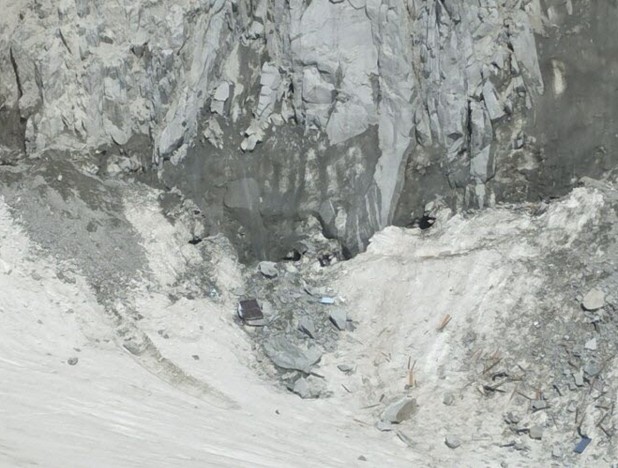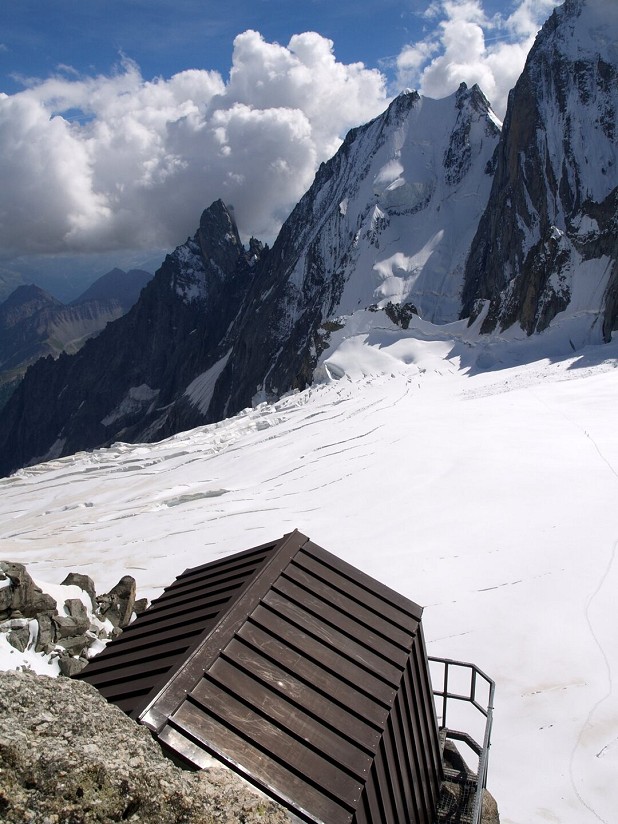
The Fourche bivouac in the Mont Blanc massif has been destroyed in a landslide near the Col de la Fourche. The small unmanned hut - also known as the Alberico-Borgna bivouac - was located at 3674 metres on the Kuffner Arête of Mont Maudit and formed a base for this classic route among other climbs.
The structure was completely destroyed earlier this week following an estimated 300m fall onto the Brenva glacier below.
A private helicopter pilot alerted rescue services to the incident. Aosta Valley mountain rescue carried out a helicopter flyover and confirmed that no people were involved.
Ludovic Ravanel, a French mountain guide of the Compagnie des Guides de Chamonix, commented on Facebook: 'The scorching summer of 2022 and its consequence, the degradation of the permafrost, will have taken its toll on the stability of the rock base...'
The heatwave has exacerbated ice and permafrost melt throughout the European Alps this summer, leading to increased risk of rockfall, landslides and serac collapses.
In June, scientists measured a record high temperature of 10.4°C at Col Major (4,750m) near the summit of Mont Blanc (4,807m).
In July, a serac collapse on the Marmolada in Italy killed 11 people (UKC News).
Local guides stopped working on Mont Blanc's normal route and authorities strongly encouraged climbers to seek alternative objectives as high temperatures increased instability in the couloir.
The two mountain huts on Mont Blanc's normal route, the Tête Rousse and the Goûter refuges, reopened last week (UKC News) following a fortnight of closure due to heavy rockfall exacerbated by the summer heatwave.
Mountain guides and climbers based in and visiting the Alps have spoken out about the impact of climate change on their recreational and professional activities in light of the rapidly changing landscape.











Comments